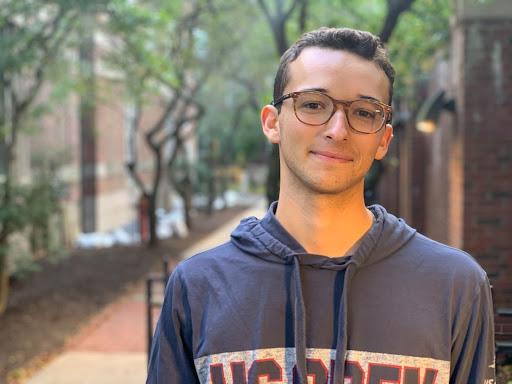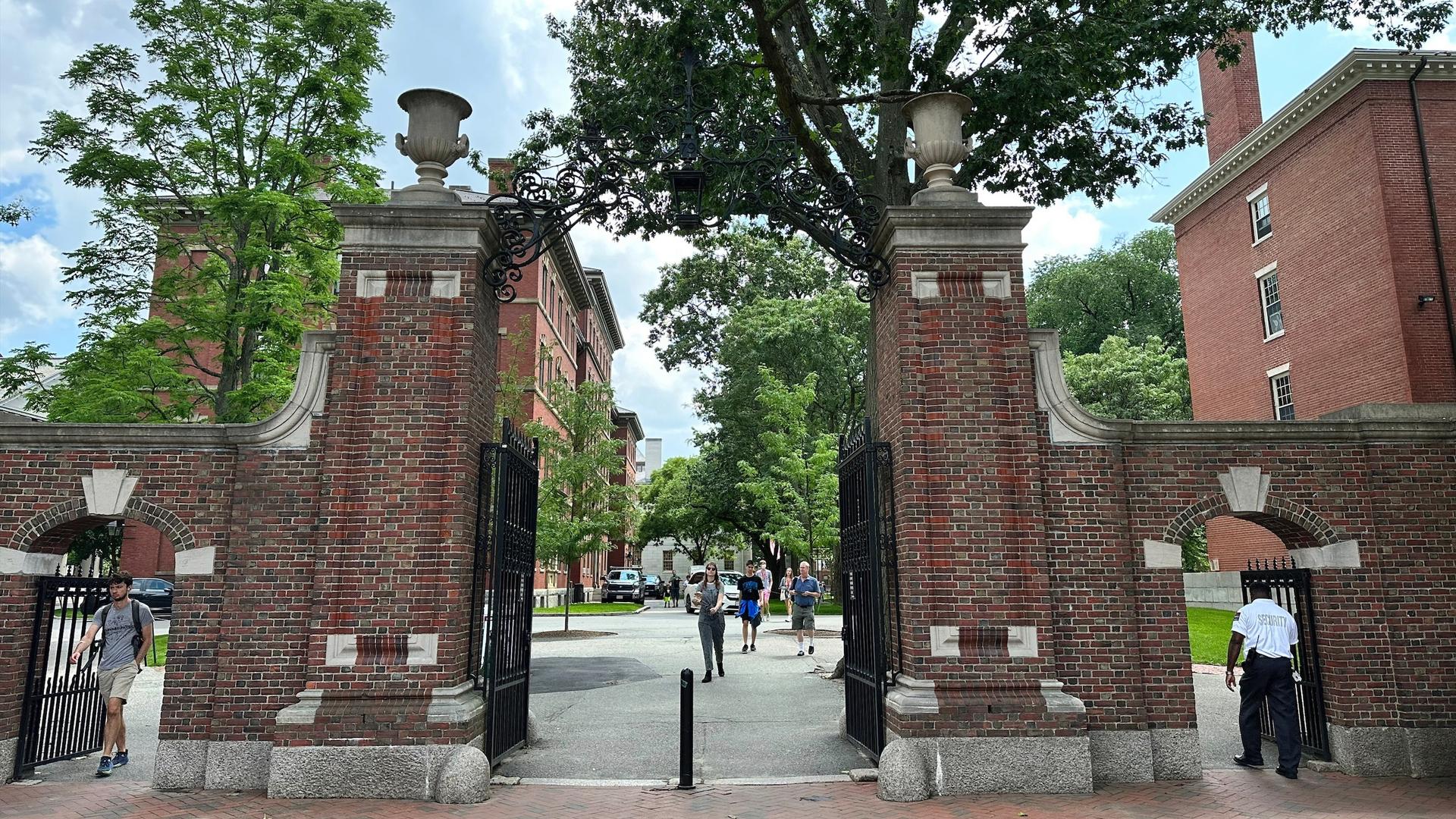Colleges struggle to balance free speech, international politics and public safety amid Israel-Hamas conflict
In recent years, American universities have been no strangers to addressing political issues — whether it’s the murder of George Floyd, or the Black Lives Matter movement, or the war in Ukraine.
These discussions have generally occurred without significant objections. However, the Israel-Hamas conflict has brought a unique set of challenges to campuses where students and administrators are struggling to balance the principles of free speech, international politics and local public safety.
Over the past week, Harvard University has found itself at the center of controversy following the recent Hamas attack on Israel. Pro-Palestine student groups at Harvard issued a statement blaming the conflict on Israel’s “apartheid regime.”
Some of the students spoke anonymously to GBH due to fears for their safety.
“The initial statement included what was lacked in a lot of other statements that came out immediately after everything that was happening in Gaza, which is that it had to contextualize the events that occurred in the 75 years of oppression that the Israeli Zionist state has put Palestinians through,” said a Palestinian woman at Harvard.
This controversy has not come without consequences. Palestinians and pro-Palestinian voices on campus have faced harassment.
“It has been very scary, and it has been very horrific to see that Harvard has left Palestinians and pro-Palestinian voices on its campus to fend for themselves,” the woman said.
Harvard’s lack of immediate condemnation of the students’ views sparked a severe backlash from alumni, donors and public figures, including former Harvard President Larry Summers. Last week, Summers tapped out a message on social media criticizing administrators for their delay in condemning pro-Palestinian statement.
“In nearly 50 years of@Harvard affiliation, I have never been as disillusioned and alienated as I am today,” Summers wrote.
On Wednesday, a conservative, pro-Israel group funded a truck to circle Harvard Yard, displaying large images of students labeled as “Harvard’s Leading Antisemites.”
In a video released Thursday evening, Harvard President Claudine Gay condemned such stunts, saying, “We have a choice. We can fan the flames of division and hatred that are roiling the world, or we can try to be a force for something different and better.”
Gay also condemned terrorism and then reinforced the university’s commitment to free speech.
“That commitment extends even to views that many of us find objectionable, even outrageous,” she said.
The Israel-Hamas conflict has ignited nationwide debates on campuses, with pro-Palestinian and pro-Israeli groups holding vigils and counterprotests from the University of Washington in Seattle to Columbia University in New York, where administrators closed the Upper West Side campuses to the public.
As tensions escalate, some powerful, wealthy donors are threatening to pull funding from schools that don’t publicly defend Israel. Others are acting. On Monday, The Wexner Foundation, a nonprofit that fosters Jewish and Israeli leadership, announced it would cut ties with Harvard over the university’s response to the Hamas raid.
Free speech advocates argue that universities should not feel obligated to take sides.
“I condemn terrorism myself, but the problem is universities should not do that because universities have to be an environment in which students, faculty, and others feel free to express their views,” said Geoffrey Stone, a law professor at the University of Chicago. “Students and faculty should have the right to say, ‘Well, terrorism is justified in certain circumstances.’”
In 2014, after students protested invitations to controversial speakers and some colleges withdrew those invitations, Stone helped develop what became known as the Chicago Principles — an “overarching commitment to free, robust and uninhibited debate.”
Since then, more than 70 colleges and universities across the country have adopted the Chicago Principles, including Princeton, Purdue, Georgetown and Virginia Tech, according to the Foundation for Individual Rights and Expression.
“When we wrote them, there was no intention to have them adopted by anybody else,” Stone said. “Its basic point was simply to iterate, in clear terms, the University of Chicago’s long-standing policy from its very founding about the necessity for free speech on campus and the right of individuals, students, faculty and so on to speak their mind without the university interfering.”
Notably, Harvard has not adopted them.

At Harvard Yard before a Shabbat event on campus, pro-Israel students voiced concerns about a lack of moral clarity amid the violence in the Middle East.
“When Russia invaded Ukraine, there was a Ukrainian flag in the yard,” recalled first-year student Charlie Covit, a member of Harvard Hillel. “There was no wavering. There was total moral clarity. And not seeing that here when it’s Jews that are being killed is, I think, disappointing.”
Covit said he wishes the university would avoid making statements on every issue.
“Once you set the precedent of speaking out about Russia and Ukraine, speaking out about Black Lives Matter, issues where I agree with the administration, then it’s a very big disappointment when it comes to Jews being killed, either we don’t see anything or it takes longer,” he said.
Harvard declined to comment for this story.
While some groups that initially signed the statement blaming Israel for the Hamas attacks have since apologized and retracted their signatures, the issues surrounding the Israel-Hamas conflict are far from resolved.
Protests are planned across the country throughout the week.
GBH’s Esteban Bustillos contributed to this story.
The story you just read is accessible and free to all because thousands of listeners and readers contribute to our nonprofit newsroom. We go deep to bring you the human-centered international reporting that you know you can trust. To do this work and to do it well, we rely on the support of our listeners. If you appreciated our coverage this year, if there was a story that made you pause or a song that moved you, would you consider making a gift to sustain our work through 2024 and beyond?
